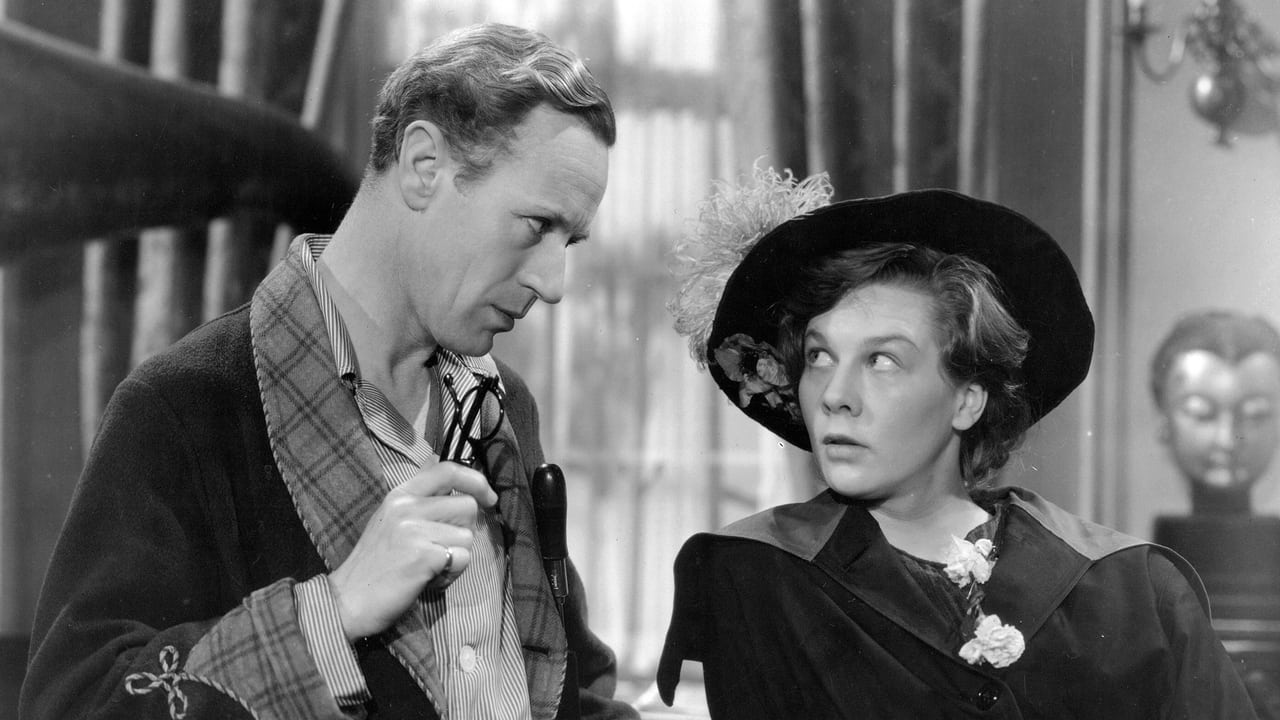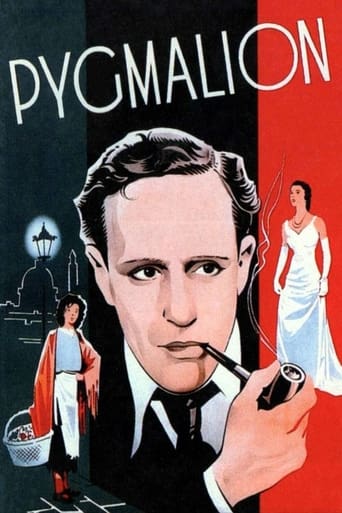



A brilliant film that helped define a genre
While it doesn't offer any answers, it both thrills and makes you think.
View MoreIt is an exhilarating, distressing, funny and profound film, with one of the more memorable film scores in years,
View MoreTrue to its essence, the characters remain on the same line and manage to entertain the viewer, each highlighting their own distinctive qualities or touches.
View MoreNow, I will own up to liking 'My Fair Lady' but all those songs are not what made this story successful (as a stage play) in the first place. It isn't clear what GBS would have made of it (he'd died by then), but I could guess; possibly he is rotating subterraneously to this very day.However this version of his story was made with his (almost full) approval, and differs only in detail from the stage play. In point of fact most of the changes that were made for the film he considered improvements to the original stage play, and he recommended that they be incorporated in any future stage productions.Leslie Howard is naturally excellent as the somewhat brusque, snobbish, and occasionally pompous professor; Alfred Doolittle and Colonel Pickering are spot-on too, but the make or break character in this film is of course Eliza herself.Wendy Hiller may not have been first choice for this role in the film (it was her second film role ever), but she had already played Eliza on stage with much success. I have to say I think she is rather wonderful in this film, and I would echo the comments of other reviewers that it is lamentable (for us film lovers anyway) that she concentrated on the stage at the expense of the silver screen.Now, one of the issues with this story (on stage or screen) is that the East End accents etc need to be toned down in order that they are intelligible to those who are not familiar with them. Often those with a thick accent amongst themselves have a different voice to speak to strangers with; they are familiar with the problem. For the stage or screen it is a fine line to tread; what remains may be representative in some respects, (eg sentence construction) but is otherwise perhaps not the same thing at all. The mangled vowel sounds have to be intelligible but remain obviously distinct and 'wrong'. Hiller and Lawson (as Doolittle) do this very well.GBS wrote "It is impossible for an Englishman to open his mouth without making some other Englishman hate or despise him". It is over a century since GBS wrote this play and it is remarkable that not only does it hold true that local accents prevail, but also that the same local accents prevail; the dialect of 100 years ago (despite lack of constraint at least and more often downright condemnation from experts in grammar, dictionaries etc) remains largely unchanged.And of course the social distinctions that go with accents also still remain. GBS's "hate or despise" is a bit strong but no-one is entirely immune to making snap judgements about people based on the way they speak, rather than the thing it is that they are trying to say. 'Twas ever thus, I suspect.GBS's dialogue is as sharp as a razor here; short lines are often pricelessly pithy, full of barbed comment on the class war. A good example is the exchange between Higgins and Alfred; " ... have you no morals, man?!" - " I can't afford 'em, guvnor...". There are many others.One thing GBS didn't like was the ending to the film, which differs from the play. Being hopelessly sentimental at heart, I quite like it.This is, and I suspect will remain, a definitive version of this story. It is possible that the whole premise of the story will one day no longer be relevant, but I can't see that happening anytime soon.Top marks from me.
View MoreAfter having been required to read this play in high school and then being re-exposed to it in My Fair Lady, this authentic movie version was a total breath of fresh air. First and very important, is the fact that Criterion has beautifully restored this black and white movie. In fact, one wonders if it was ever seen in theaters with such clean, pristine images and sounds (the latter of which is very important to the story itself). The opening credits say "Introducing Wendy Hiller." I remember thinking, if this is her film debut, how could she have thought that she would ever equal it!! Nevertheless, she did come back in another great Bernard Shaw movie in 1941, Major Barbara (which also cries out to be equally restored by Criterion). I especially appreciate these two movie versions of Shaw's plays due to their closeness and authenticity to Shaw, himself. In both, Shaw wrote the scenario and dialogue; both were produced by Gabriel Pascal (who went on to produce and or direct other Shaw play-based movies) and directed by Anthony Asquith (who went on to direct other Shaw play-based movies). This 1938 movie is the "gold standard" of the play! I've never seen a better Henry Higgins than Leslie Howard (who also co-directed the movie). He was born for this part and it is hard to imagine that Rex Harrison didn't use him as his model in My Fair Lady. Likewise, Wendy Hiller—unlike Audrey Hepburn--was totally believable as Eliza Dolittle. Also look for Jean Cadell to shine in the small role of Mrs. Pearce, Higgins' housekeeper.
View More. . . that "Eliza Doolittle" is driven back to Leslie Howard's self-styled modern Pygmalion, Professor of Phonetics Henry Higgins. This despite the fact that the future "Ashley Wilkes" (Leslie Howard) uses the "D-word" a dozen times more than Clark Gable's Rhett Butler would the following year in GONE WITH THE WIND. (That's because England was about a dozen times more "free" than America back in the 1900s.) Eliza's wavering between misogynist "confirmed bachelor" Henry and Freddy's Mr. Giggles is understandable, since Oscar-winning screenwriter George Bernard Shaw included an "afterword" about 50 pages long with the book version of his original PYGMALION stage play explaining why he thought Freddy--NOT Henry--must wind up with the flapper version of Galatea, Eliza. Emerson said a foolish consistency is the "hobgoblin" of little minds, which excuses Shaw's ambivalence. Bernie had a great big brain--so vast that he's the only screenwriter in movie history to have a Nobel Prize on his mantle. When you watch PYGMALION, you'll realize Shaw handed Lerner and Lowe the musical openings and half the actual lyrics to their eventual 1964 "Best Picture" screen musical remake of this story: MY FAIR LADY.
View MoreWonderful adaptation of George Bernard Shaw's play.There is great chemistry existing here between Leslie Howard and Wendy Hiller.If you've seen "My Fair Lady" first, you might be disappointed. With all the beautiful music, that film was far more captivating, but this 1938 gem is not exactly a slouch either.With a totally different ending that might disappoint you, this is basically a story of a woman coming into her own and after succeeding, learning that in life we must assert ourselves. The next to the last scene where Hiller asserts her intentions is absolutely terrific.The scene at the ball may have been a little too dull, but nevertheless, it fits the decor.Cheers to George Bernard Shaw for his creation.
View More